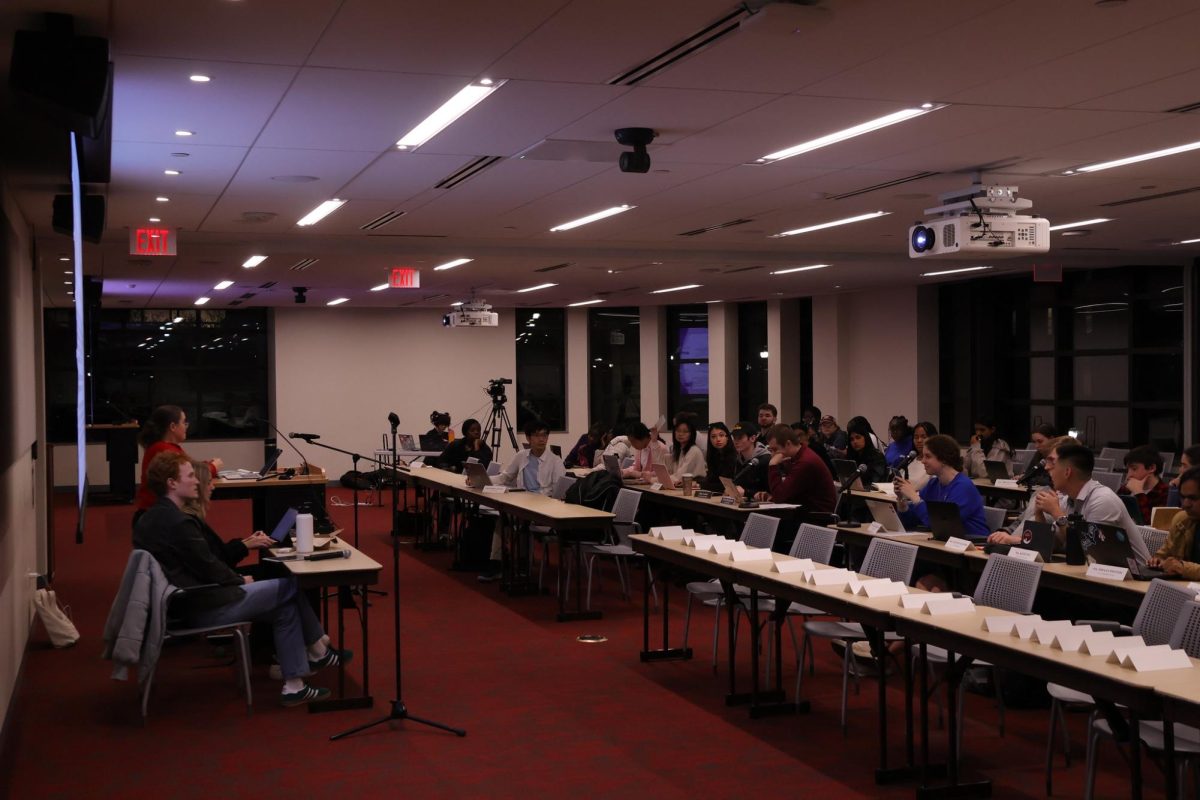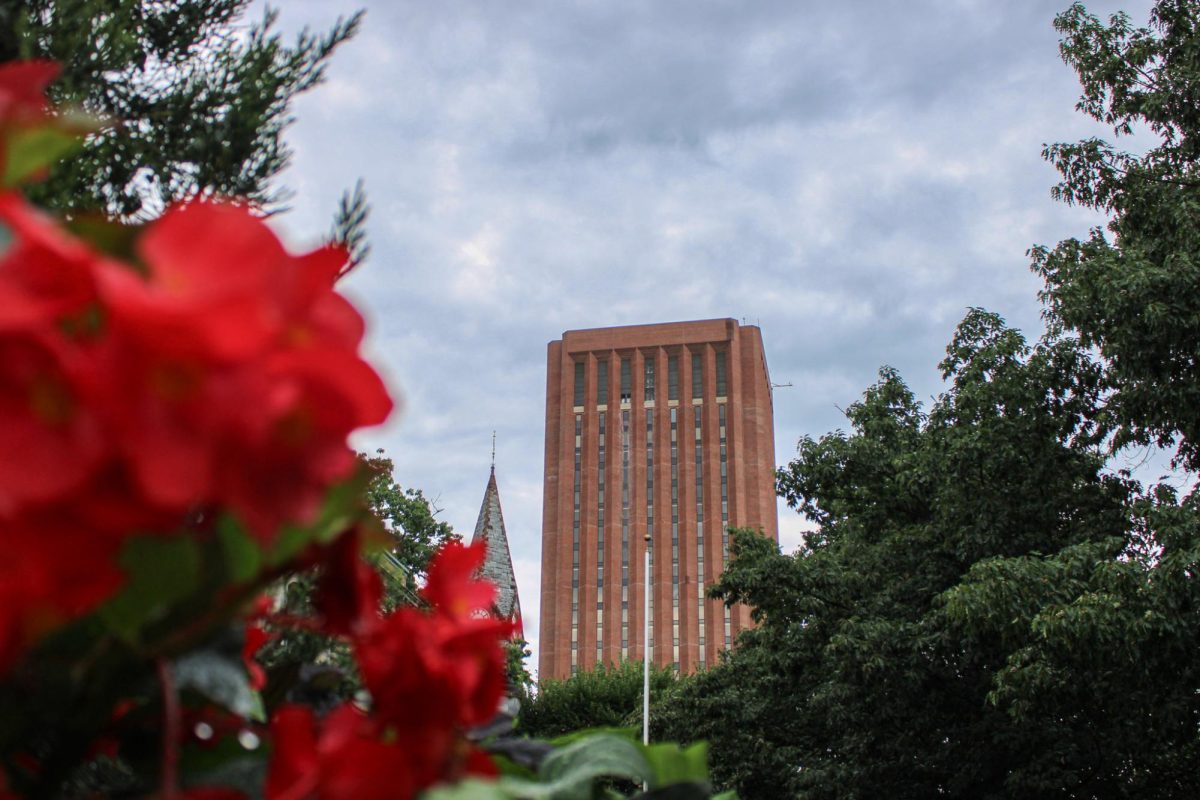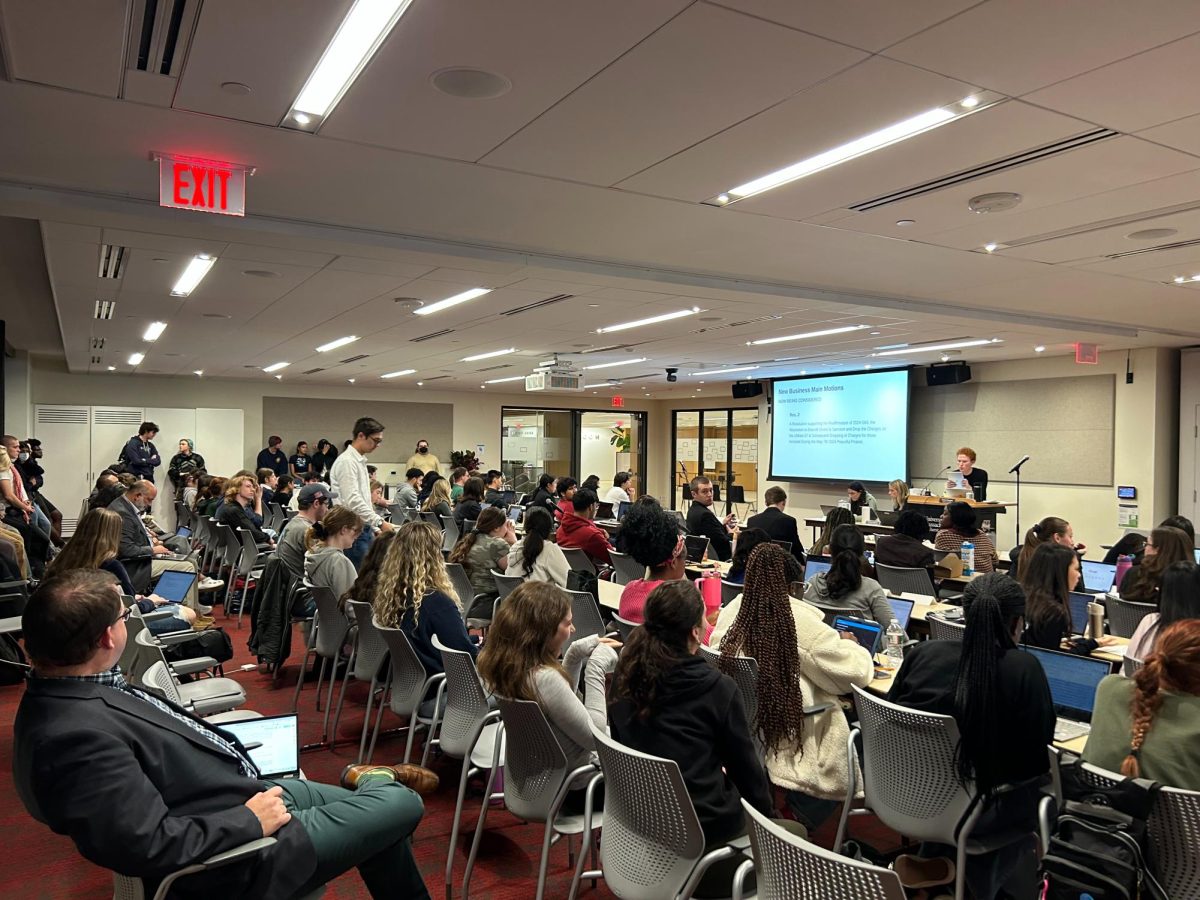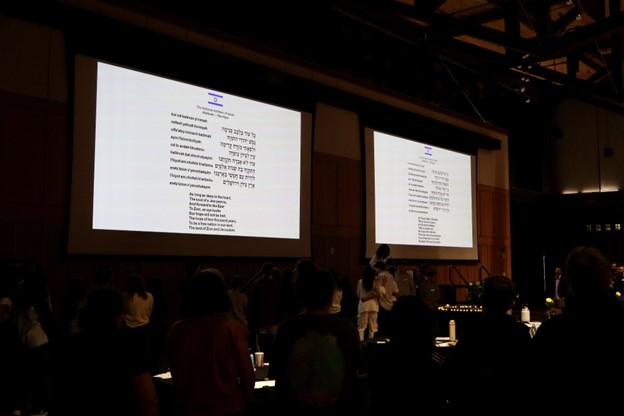On Nov. 9 Erin Baker, professor of mechanical and industrial engineering, received the Chancellor’s Medal at the Distinguished Faculty Lecture of 2022-2023. Baker discussed her research in uncovering climate solutions in tandem with the uncertainty of climate change and conflicting data.
Baker’s work doesn’t focus on finding a single solution among the various opinions of climate scientists and models. Instead, Baker seeks to discover a range of climate solutions that reduce greenhouse gas emissions quickly and effectively.
Baker began her lecture recounting technological ingenuity and innovation that surpassed human’s expectations. She pointed towards the skies of the University of Massachusetts, comparing the C-5M Super Galaxy planes flying above campus today to Orville and Wilbur Wright’s first aircraft.
Baker applied the speed of aviation innovation to renewable energy technology. Offshore wind energy costs were cut in half over the span of six years, solar costs decreased by 75 percent between 2010 and 2020 and today’s electric car expenses are 20 years ahead of predictions.
“I think it was the positive tone to the innovation we can have on things because oftentimes [with] climate change you see a very negative approach,” said Jacob Roulier, a sophomore mechanical engineering major in attendance. “But to see a positive approach to it, with statistics to back that up when it came to solar or wind or whatever innovations that decreased [in cost] so much faster than expected,” he continued, referring to Baker’s presentation.
Baker used these statistics to illustrate that humans struggle with predicting cumulative change in technological ingenuity and reduction of price. However, she emphasized the power of climate goals established by governments in energizing this innovation.
The Clean Air Act, passed in 1963, remains an influential environmental law in United States history. The act pushed for new technologies and updates to outdated ones. “We can innovate, and we can solve problems relatively easy … but this wouldn’t have happened without the Clean Air Act,” Baker said.
These successes in climate legislation and carbon mitigation prove, from Baker’s perspective, that humans are capable of meeting bold and ambitious goals. “I don’t want to give the impression that this is going to be easy,” Baker said. “It’s not about easy, but it’s about making the world a much better place.”
The lecture explored how government-funded research and development can help meet these climate goals. Due to the scarcity of government money and range of alternative energy research, policy makers require guidance from experts and models on the best projects to invest in.
Baker explained climate change is wrapped in deep uncertainty; caused by a combination of the unexpected results of technology and global warming mixed with the conflicting opinions of scientists.
Analysis starts with a portfolio of various sustainable energy sources, according to Baker. This allows policymakers to view interactions between solar, nuclear, wind, biomass, biofuels and carbon capture technologies and prevent wasting financial resources by over or under investing in one resource.
The analysis looked for certain expert opinions that agree, or dominate, across most of the scientists, and then threw those out. What’s left was a portfolio that applies to multiple experts’ opinions, leaving space for policy makers to negotiate and adapt to either of the expert’s suggestions. Regardless of the political decision, the investment produces results.
“The way she presented her research, there was no room for dispute between expert models; it wasn’t like ‘should we trust these models?’ it was like, ‘which of these models should we trust?’” said Kashish Singh, UMass physics major in attendance.
Baker called this process “robust decision making.” The procedure was able to find that, at a carbon tax of under $125 per tons of carbon dioxide, investment in solar and bio-electrical technology is always beneficial.
“We’re both biologists and we think about climate change in a certain way, and we were saying that we’re so driven by data that we sat in this talk thinking that ‘What are those underlying data?’” said Elsbeth Walkers, UMass biology professor.
“But to the perspective of a policy maker, policy makers probably don’t understand any of the data,” she said. “So having this approach, where maybe you get to use the data to help you set policy, as opposed to just lobbyist[s] seems awesome to me.”
Baker ended the talk with two options: continue to underestimate man’s ability to innovate or, “we can trust in human ingenuity, set ambitious goals and fly into a world that is cleaner, cooler and more just.”
Emilee Klein can be reached at [email protected] and followed on twitter @emileekleinn.


















